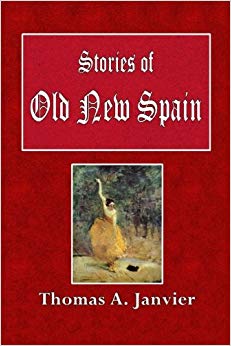-
Color Your Own Toulouse-Lautrec Masterpieces
Henri de Toulouse-Lautrec
Paperback (Dover Publications, April 14, 2006)A genius with remarkable powers of observation, Henri de Toulouse-Lautrec was drawn to the bohemian life that he loved to paint. Scenes from circuses, dance halls, nightclubs, and racetracks were spectacles he set down on canvas or made into lithographs. Thirty of the great Post-Impressionist's most famous works fill this splendid collection. Colorists can re-create or modify with their own hues such masterpieces as The Clowness Cha-U-Kao; Jane Avril; Moulin Rouge, La Goulue; The Jockey; and Divan Japonais. Captions included. U
U
-
The Paris of Toulouse-Lautrec: Prints and Posters From The Museum of Modern Art
Sarah Suzuki, Henri de Toulouse-Latrec
Hardcover (The Museum of Modern Art, New York, July 31, 2014)Though he was deeply engaged with painting and drawing, Toulouse-Lautrec’s lasting contribution to artistic practice was as a graphic artist. Through his prints and posters, he brought the language of the late-nineteenth-century French avant-garde to a broad public, through editioned prints, advertisements and contributions in reviews and magazines. He ushered in the first print boom of the modern era; taking advantage of lithography’s new potential for color and scale, he made both posters for the streets of Paris and prints for the new bourgeois collector’s living room. During his short career, he created more than 350 prints and 30 posters, as well as lithographed theater programs and covers for books and sheet music. The Museum of Modern Art’s collection of this material is stellar, encompassing over 100 prints and posters, his most important book projects, and many magazines, journals and other examples of printed ephemera. A cultural nexus, Toulouse-Lautrec connected artists, performers, authors, intellectuals and society figures of his day, creating a bridge between the brothels and society salons of the Belle Epoque. His work allows entry into many facets of Parisian life of the period, from politics and economics to visual culture and the rise of popular entertainment in the form of cabarets and café-concerts. Featuring an overview essay by Sarah Suzuki, Associate Curator in the Department of Drawings and Prints at MoMA, this publication presents thematically organized groupings of Toulouse-Lautrec’s prints from the Museum’s collection, each accompanied by an illuminating essay on the theme. Inserted into the book is a 20" x 17" poster titled "Mademoiselle Eglantine's Troupe."Henri de Toulouse-Lautrec (1864–1901) is best known for his portrayals of late-nineteenth-century Parisian life, particularly working-class, cabaret, circus, nightclub and brothel scenes. He was admired then as he is today for his unsentimental evocations of personalities and social mores. His greatest contemporary impact was his series of 30 posters (1891–1901), which transformed the aesthetics of poster art.
-
The art of cuisine
Henri de Toulouse-Lautrec
Hardcover (Crescent Books, March 15, 1966)None
-
The Art of Cuisine
Henri de Toulouse-Lautrec
Hardcover (Pan Macmillan, Nov. 10, 1995)Like many well-born men of his time, Toulouse-Lautrec loved food--planning it, cooking it, eating it, and talking about it. This culinary memoir features original recipes and exuberant drawings by Toulouse-Lautrec, plus a Preface by Alexandra Leaf describing the French culinary scene of the time. 15 four- and 17 two-color illustrations.
-
Henri de Toulouse-Lautrec
Henri de Toulouse-Lautrec
Hardcover (H. N. Abrams, Aug. 16, 1969)Physical description; 41 p. : col. ill. ; 58 cm. Notes; "This book is the first publication of the Toulouse-Lautrec Circle of London and was issued in November 1969 in an edition limited to 1250 copies for the world." -- T.p. verso. "This set of ten lithographs with a frontispiece and cover was originally published in 1896"--P. 39. "The watermarked paper for the plates was specifically made by Papeteries de Lana of Docelles, France, for the Toulouse-Lautrec Circle ... Plates and text printed in Great Britain by the Westerham Press ... Binding by Zaehnsdorf Limited, London" -- T.p. verso. Slipcase. Subject; Toulouse-Lautrec, Henri de 1864-1901.
-
Henri de Toulouse-Lautrec
Henri de Toulouse-Lautrec
Unknown Binding (H. N. Abrams in association with Pocket Books, March 15, 1953)None
-
The Art of Cuisine by Henri De Toulouse-Lautrec
Henri De Toulouse-Lautrec;Maurice Joyant
Hardcover (Henry Holt & Co, March 15, 1750)None
-
The Art of Cuisine by Henri De Toulouse-Lautrec
Henri De Toulouse-Lautrec;Maurice Joyant
Hardcover (Henry Holt & Co, March 15, 1617)None
-
Toulouse-Lautrec: Drawings & Paintings
Henri Toulouse-Lautrec, Raya Yotova
Paperback (Independently published, Nov. 21, 2019)In his less than 20-year career, Toulouse-Lautrec created about 800 oil paintings, hundreds of watercolors and over 5000 drawings. Impressionist influence, especially the more figurative artists like Manet and Degas, is evident. His style is also influenced by the classic Japanese prints that have become popular in the Paris art circles.He is a master of painting scenes in the crowd, where each figure is highly individualized. The skillful portrayal of his personages relied on his graphic style, which is highly linear and highlights the contour. He often puts paint in long, thin brushes that leave much of the canvas or cardboard under it uncolored. Many of his works can best be described as "drawings in color paint."
-
Stories of Old New Spain
Thomas A. Janvier, Henri de Toulouse-Lautrec
Paperback (CreateSpace Independent Publishing Platform, )None
-
The Art of Cuisine by Henri De Toulouse-Lautrec
Henri De Toulouse-Lautrec;Maurice Joyant
Hardcover (Henry Holt & Co, March 15, 1771)None
-
Henri de Toulouse-Lautrec
Henri de Toulouse-Lautrec
Unknown Binding (H. N. Abrams, March 15, 1970)None